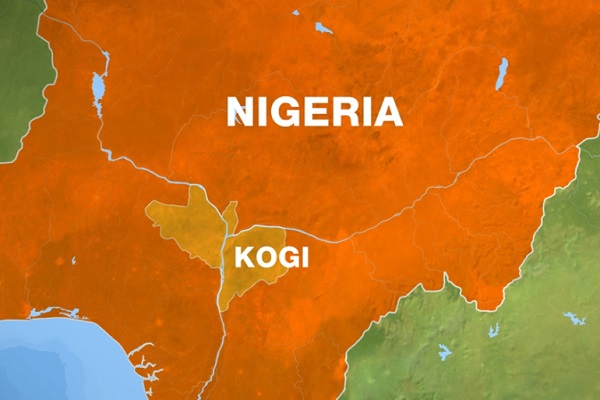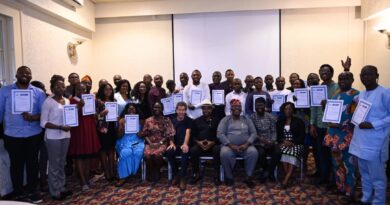Leadership Crisis in the North: A Path to Irrelevance and Decay By Abdul-Azeez Suleiman
The North of Nigeria, once admired for its systems and quality of leadership, is now plagued by a leadership crisis.
The current leaders and elites in the region, ill-prepared and ill-equipped to lead, driven solely by their ambitions for power and wealth, have failed to address the pressing issues facing the region, resulting in widespread insecurity, poverty, and economic stagnation.
These leaders have failed in their vital task of rescuing the region from irrelevance, impotence, inconsequence, and decay within the Nigerian nation. They have neglected the values and practices that once made the North a formidable region.
Past leaders, who paid the ultimate price for standing up for the rights of Northerners, have been disregarded. The North, which once competed with other regions and defended itself admirably, has now become a citadel of poor governance, indifference, insensitivity, and unprecedented plunder.
Its current leaders have made serious mistakes and miscalculations, leading to costly adventures that have created disunity and disharmony among the northern communities.
As a result, the people of the North are left vulnerable to armed crime, unforgivable poverty, and derision from other parts of the country. Communal crises such as the Tiv and Jukun conflicts, the Boko Haram insurgency, cattle rustling, banditry, and kidnappings have become pervasive issues in the North.
These problems have further exacerbated the region’s challenges, leaving the people at the mercy of violent crimes and a combination of insecurity and poverty, which have worsened over the years.
The ineptitude and levity of successive governors since 1999 have contributed to the region’s current state.
They have failed to address the region’s basic socio-cultural problems, regressing economy, and precarious future. Instead of finding solutions to the Fulani and their cattle, they have allowed the situation to escalate, leading to conflicts and tensions. Millions of children in the North live in poverty and are deprived of education, wasting the region’s greatest asset, its human capital.
Northerners bear the brunt of bad governance more than other Nigerians due to their experience of living under inept and corrupt leaders. The deteriorating economy affects the North disproportionately, as the region heavily relies on agriculture and livestock. When the cost of inputs becomes prohibitive and threats to lives limit productive capacities, the economy of the North suffers greatly.
For over a decade, the North-West region in particular has been grappling with the activities of terrorists, commonly known as bandits. These terrorists have unleashed a reign of terror, making life unbearable for the people of the region. Their actions have resulted in the loss of hundreds of thousands of lives and the displacement of millions. Schools, religious institutions, and highways have all been targeted, with frequent abductions and demands for exorbitant ransoms becoming the norm.
Families are torn apart, communities are shattered, and economic activities are disrupted. The fear of attacks has forced many residents to abandon their homes and seek refuge elsewhere, exacerbating the already dire situation.
In addition to the rampant insecurity, the North-West has also been plagued by extreme poverty. The recent multidimensional poverty index released by the National Bureau of Statistics (NBS) ranked the region as the poorest in the country, with a staggering 45.5 million residents living in poverty.
Lack of access to basic necessities such as food, clean water, healthcare, and education has become the norm for many in the region. The once-thriving cotton industries, textile factories, and manufacturing firms in states like Kaduna, Zamfara, and Katsina have become dormant, leading to widespread unemployment and economic stagnation.
Even in Kano State, once known as a hub of industrial activity, many industries are struggling to survive.
The persistent terrorist activities have not only claimed lives but have also disrupted economic activities, leading to job losses and the collapse of industries. The resulting poverty, in turn, creates an environment conducive to the growth of insecurity, as desperate individuals resort to criminal activities to survive.
It is evident that not all Northern leaders are committed enough to work towards solving these pressing issues, as they prefer to manipulate the masses during elections. The failure of successive governors to address these issues has exacerbated the situation, leaving the region in a state of despair. Disunity, conflicts, and economic regression have become the norm, while the people suffer the consequences.
It is crucial to replace leaders who prioritize power over the welfare of the people and work towards finding solutions to the region’s socio-cultural and economic challenges. Only through the right political will and quality leadership can the North reclaim its former glory and secure a prosperous future for its people.
Only through a comprehensive and coordinated approach can the North-West region hope to overcome these challenges and provide its residents with a brighter future.



